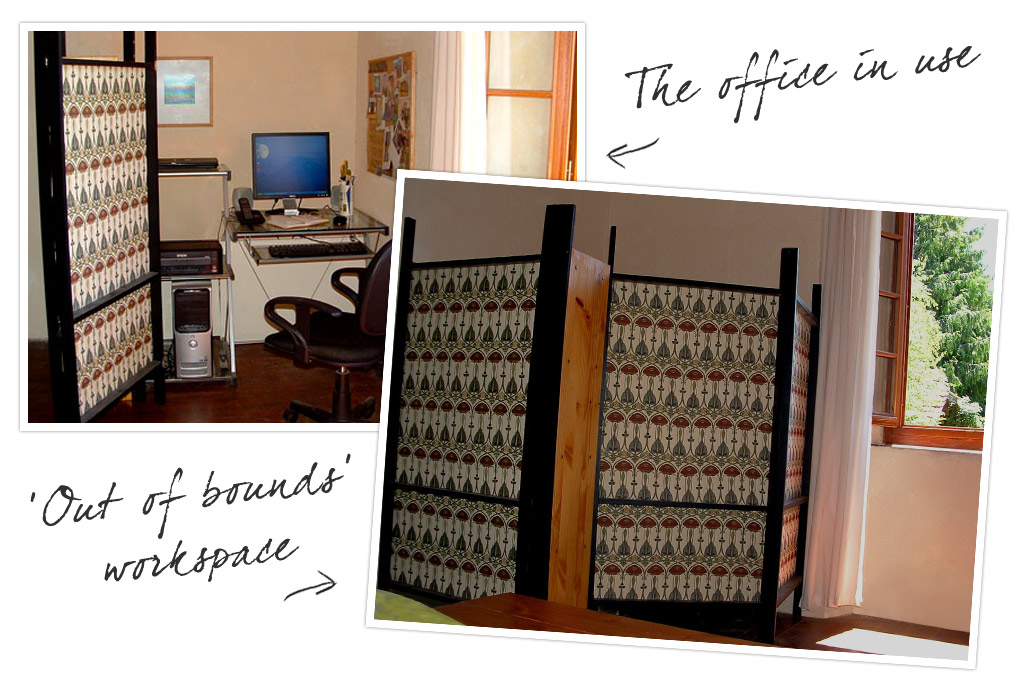How to set boundaries when you work from home
It can be hard enough fighting procrastination and acquiring the discipline you need to make homeworking really work – without the temptation of friends and family dropping by or calling for a chat.
That’s why boundaries are so important.
Working from home can be lovely – especially if you’re your own boss. You get to choose when and where you work, and enjoy a level of flexibility often envied by office-bound employees.
But with all that lovely freedom comes the responsibility of ensuring that you do actually work – that deadlines are met and clients, employers and customers are kept happy.
And this takes discipline, dedication, and clear working boundaries that must be respected – not only by you, but your friends and family, as business and marketing coach Sarah Devenny explains.
This is even more relevant if you have aspirations to work and travel at the same time, which is something that the team at Can I Work From Here? are enthusiastic to promote and fully dedicated to discovering the world of remote work.
Why we need boundaries when working from home
One of the first reactions I get from people when I happen to mention that I work from home is, “Oh, lucky you, it must be great having all that free time!” or “I would love to be able to work in my pyjamas.”
The truth is, in the four years I have worked from home I can probably count on one hand the number of times I have actually worked in my pyjamas – and if I did, it was because I was sick or suffering from jetlag. It’s just not something that appeals to me – it makes me feel sluggish and that definitely has an effect on my productivity, so I try to reserve it for extreme days.
I also make a concerted effort to stick to working hours. Because while working from home certainly comes with many perks – especially if you’re self-employed and work from home – you also need to remember that it’s still a job, and treat it as such.
The problem though, is not with me. It’s with the very reactions to homeworking I just mentioned. All too often, my friends and family (especially the ones who have never been self-employed) assume that ‘working at home’ means that I’m free to meet up or chat whenever they (or I) like.
They think that homeworking is a casual arrangement that can be reshaped to fit the rest of my life. And in some senses it’s true – I do have the option of scheduling personal appointments within office hours, or taking an afternoon off to head down to the park in the sunshine.
But I can’t do this every day. I still need to actually get work done, and this means knuckling down to work during my defined working hours – and letting people know when this is, so they know when not to interrupt (and when they can).
How to set boundaries when you work from home
So what do you do when your friends and family assume that ‘working from home’ means that you are available for chats or to meet whenever you like? How do you politely get across that you need to work when you are at home, and set clear boundaries?
Here are some solutions that have worked for me – maybe they’ll help you too.
Have clear working hours
While one of the benefits of homeworking may be flexibility – especially if you’re a freelancer or run your own business, having some kind of routine is important. Especially if you’re a mum and your working time is preciously short.
Not only does it help you to structure your week and plan your work so you can be confident you will meet your deadlines, it also helps to discourage unexpected visits and phone calls.
So let your friends and family know what hours you generally work, so they can leave you to concentrate then. And if they do forget and get in touch, you can politely-but-firmly remind them that you’re working right now.
You can always arrange to call them back or meet up once you’ve clocked off for the day, if you like.
Define a specific workspace
It doesn’t matter where in your home you work – the kitchen table, the sofa, your spare room – as long as you have a defined space that you feel comfortable and productive in. And just as importantly, one your family can respect as off-limits.
Once you have defined your space, let your partner and children know that if you are there working, you are not to be interrupted as you need your full concentration.
If they need to, they can come into the room and get something you’re working (unless you have a dedicated office and you can shut the door), but if they do so they should basically act as though you’re not there – and that means not asking you to find or mend things for them!
Communicate your expectations
If you don’t let people know when you need or want to work, and when you’re free to give them your undivided attention, how will they know?
All too often, we avoid setting clear boundaries with people because often we’re afraid of offending them. But the truth is, most people won’t be offended. And if you lay out the ground rules politely from the start, then everyone knows where they stand and can go about their lives.
It’s not reasonable to expect people to follow rules if you haven’t given them any to follow – so if you need some quiet space at home at the weekend to finish off a project, or can’t meet a friend for coffee one week, let them know. There’s no need to be unfriendly, just be politely clear.
And if you need to, remind then that just because you work at home, doesn’t mean that you can take a break when you want. Your friends or family wouldn’t just drop in to visit you if you worked in an office, so if they can see the principle is the same, they will probably think twice before popping round for a visit if you work at home.
Don’t be so available
If you’re the type of person who replies to every single email, tweet or text the second it arrives, then this is something you really need to stop. When you’re working from home you need to turn off any distractions.
Keep your phone on for any emergencies if you need to, but try to switch all other disruptions off. This includes email and social media. If you need to, set times throughout the day to check and reply to emails – such as after lunch – and stick to it.
If you come to the end of one piece of work, or a tricky point in a project, don’t be tempted to ‘just’ check your emails, Twitter or Facebook. Before you know it, you’ll have lost half an hour responding to non-urgent email requests, or got lost in an old colleague’s holiday photos!
Lead by example
The only way you can expect people to follow the rules you’ve set out for them, is if you are also consistently following them. This may seem like an obvious point, but you’d be surprised at how often we do this – and then get frustrated because no one appears to be taking notice of the rules.
You can’t blame people – if you’ve told your friends that you usually work on a Tuesday morning but they see you at the gym or meeting another friend for coffee one Tuesday, they’ll assume that your ‘work’ days are quite a loose arrangement, and not set in stone. And then what’s to stop them inviting you to catch up one Tuesday, or dropping by unannounced?
Equally, if you’ve told your family that you need quiet and peace when you’re working at the kitchen table, but they catch you watching your favourite TV show online or chatting to a friend on the phone, they may not respect your working space in future.
What works for you?
These are tactics I have learned over the years that work for me. But what about you? What are your biggest challenges when it comes to setting boundaries as someone who works from home? And what have you implemented that works for you?
Please feel free to share your thoughts and solutions in the comments below.
Sarah Devenny is a business and marketing coach. You can find out more about her work on her website.










